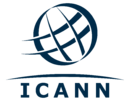Main Page: Difference between revisions
Weekly Article - DNSSEC |
Weekly Article - IPv6 |
||
| Line 20: | Line 20: | ||
<br /><div style="color: #FFF; background-color: #0d8323; padding: 5px 10px; border: 1px solid #466f81;"><big>Article of the Week</big></div><div style="padding: 10px;"> | <br /><div style="color: #FFF; background-color: #0d8323; padding: 5px 10px; border: 1px solid #466f81;"><big>Article of the Week</big></div><div style="padding: 10px;"> | ||
<big><b>[[ | <big><b>[[IPv6]]</b></big> | ||
<br /> | <br /> | ||
[[IPv6]] ([[Internet Protocol Version 6]]) is the version of [[Internet Protocol]] which supports the 128-bit [[IP Address]]es. It has been developed as the next generation protocol to increase the 4 billion IP Addresses available and it will eventually replace the nearly exhausted [[IPv4]], which supports 32-bit address space. IPv6 has been developed to provide advantages over the current internet protocol. It is expected to solve several network problems by eliminating the need for Network Address Translation (NAT). On February 3, 2011, [[ICANN]] along with the [[Number Resources Organization]] (NRO), the [[Internet Architecture Board]] (IAB) and the [[Internet Society]] (ISOC) informed the global Internet community that the remaining IPv4 addresses were all allocated by the [[Internet Assigned Names and Numbers]] (IANA) to the [[Regional Internet Registries]] (RIRs). ICANN's President and CEO at the time, [[Rod Beckstrom]], noted that IPv6 adoption is very important and the Internet technical community had been planning and working for a long period of time to deploy IPv6 when IPV4 addresses are completely depleted. | |||
<strong>([[ | <strong>([[IPv6|Read the full article...]])</strong> | ||
<div style="float:right;"><small><strong>Related: [[ | <div style="float:right;"><small><strong>Related: [[Internet Protocol]] - [[IP Address]] - [[IPv4]]</strong></small></div><div style="clear: left;"></div></div> | ||
<br /><div style="color: #FFF; background-color: #466f81; padding: 5px 10px; border: 1px solid #0d8323;"><big>Latest Feature</big></div><div style="padding: 10px;"> | <br /><div style="color: #FFF; background-color: #466f81; padding: 5px 10px; border: 1px solid #0d8323;"><big>Latest Feature</big></div><div style="padding: 10px;"> | ||
Revision as of 19:29, 2 June 2014
ICANNWiki Info Sheet
Many thanks to our sponsors for all of their continued support!
IPv6
IPv6 (Internet Protocol Version 6) is the version of Internet Protocol which supports the 128-bit IP Addresses. It has been developed as the next generation protocol to increase the 4 billion IP Addresses available and it will eventually replace the nearly exhausted IPv4, which supports 32-bit address space. IPv6 has been developed to provide advantages over the current internet protocol. It is expected to solve several network problems by eliminating the need for Network Address Translation (NAT). On February 3, 2011, ICANN along with the Number Resources Organization (NRO), the Internet Architecture Board (IAB) and the Internet Society (ISOC) informed the global Internet community that the remaining IPv4 addresses were all allocated by the Internet Assigned Names and Numbers (IANA) to the Regional Internet Registries (RIRs). ICANN's President and CEO at the time, Rod Beckstrom, noted that IPv6 adoption is very important and the Internet technical community had been planning and working for a long period of time to deploy IPv6 when IPV4 addresses are completely depleted.
Name Collision
A Name Collision describes the circumstance in which a term attempting to reach a private Domain Name results in resolving to a public Domain Name unintentionally. Private domain names are used in Intranets and in many corporations and organizations throughout the world. A domain name on a private network that matches a name in the public Internet can create security risks, confusion, and systems failure. Although the Name Collision issue is not new, a renewed interest in the issue came about in 2013 as ICANN's New gTLD Program was preparing to delegate hundreds of new domain names to the Root Zone. The topic was debated fiercely within the ICANN community when a report by Interisle Consulting was prepared for and released by ICANN.
(Read the full article...)
- gTLD Auctions
- Closed gTLDs
- Sort All TLDs by Priority
- 了解ICANN 和 新gTLDs计划
(Chinese micro-site)
ICANNWiki currently has 8,704 articles.








